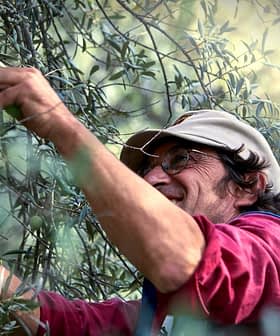Apulia Presents EU with Draft Law to Tackle Xf
Apulian President Michele Emiliano met with the EU minister of agriculture to share strategies against the spread of Xylella fastidiosa bacterium and request the closure of infringement procedures.
 Apulian President Michele Emiliano
Apulian President Michele EmilianoThe president of the Apulia Region, Michele Emiliano, with the councilor for agri-food resources, Leonardo Di Gioia, met with the Minister of Agriculture Maurizio Martina in Rome last week with the aim to examine and share common strategies against the spread of Xylella fastidiosa bacterium, as well to request the closure of the infringement procedure recently opened by EU against Italy, without incurring any sanctions.
After this useful debate on the measures to be implemented, we expect to receive details of the actions for the management and containment of the disease.
During the session, a draft law prepared by the regional government, DDL n. 147 of August 4, 2016 on the ‘Management of bacterial diseases by Xylella fastidiosa (Xf) in the Apulia Region territory,’ was presented to the Minister.
The bill, that is subject to the approval of the regional council and therefore might be changed, includes measures to handle the situation while preserving the Apulian olive trees. It recognizes the importance of preventing and reducing the spread of Xf through key activities including land monitoring, agricultural practices for the control of vectors, strengthening of the plants and uprooting infected olive trees in case of new outbreaks. Special attention is given to nurseries.
At the same time, the bill is intended to restore the economic and environmental balance in the affected areas and to protect the landscape. It promotes the recovery of damaged trees by planting tolerant olive varieties and alternative species, encourages the implementation of forest plans based on bioengineering techniques and landscape ecology, and promotes the development of quality agri-food supply chains that respect the environment and natural resources through the application of principles of circular economy.
The bill gives priority to infrastructures for the reuse of waste and the containment of the use of ground water, and to measures for the recovery of organic matter in the soil, for organic farming and for the protection and enhancement of biodiversity. From the point of view of the landscape, it provides special care to safeguard monumental olive trees and the restoration of dry stone walls. It also includes the creation of a regional agency dedicated to the operational management of Xf and to innovations in agriculture (ARXIA).
Both the Minister and the governor of Apulia were satisfied with the meeting. “After this useful debate on the measures to be implemented, we expect to receive in the next few days by the Region details of the operational actions conducted in the territory for the management and containment of the disease,” said Minister Martina. “For us, the priority of the institutional bodies involved in the emergency management is to intervene in the most effective and prompt way.”
Nevertheless, according to Emiliano, the disease can no longer be considered an emergency, but rather endemic. “This aspect has to be clear to the European Union and our country. It must be managed as a serious plant disease, not only contained,” he pointed out, since an emergency would justify extra measures and special laws, with the guidance of a Commissioner, while an acknowledgment of the endemic presence of the bacterium would make room for the use of ordinary tools.
Meanwhile, in recent days an experimental field authorized by the Apulia Region was set up by Coldiretti Lecce, in collaboration with universities and research centers of the region. About 200 plants of young olive trees of 16 different varieties were planted in Acquarica del Capo, in the province of Lecce, in a plot of 5 acres in which there are already centuries-old olive trees of Ogliarola infected by Xf. Plants of Leccino, Ottobratico, Nocellare Belice, Cassanese, Giarraffa, Biancolilla, Ogliarola, Cipressino, Carolea, Frantoio, and Itrana Roggianella will be subject to continuous monitoring in the field and in the laboratory to test the response to the bacterium.
Since non-native varieties such as Leccino were found to be tolerant to bacterium, the concern by many is that this may lead to a replacement of traditional olive growing heritage with different tolerant varieties and other horticultural crops like grapes, with a propensity to intensive and super intensive farming.
Currently, the presence of Xf has been reported in other European countries. Four infected plants were detected in Switzerland at the end of 2015, although the news came to light only in recent days, and plants in Germany were destroyed along with other non-infected plants found in the same area.








